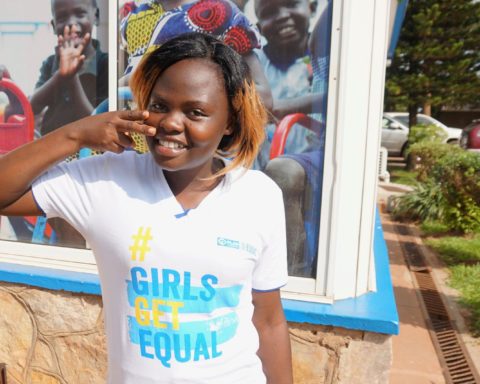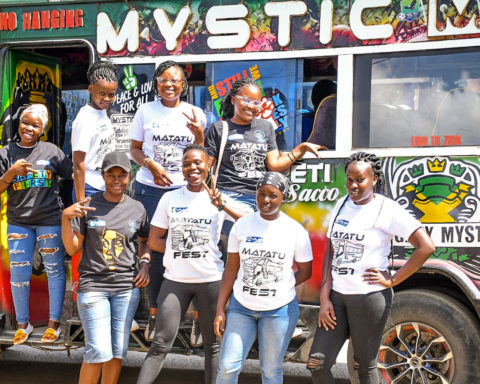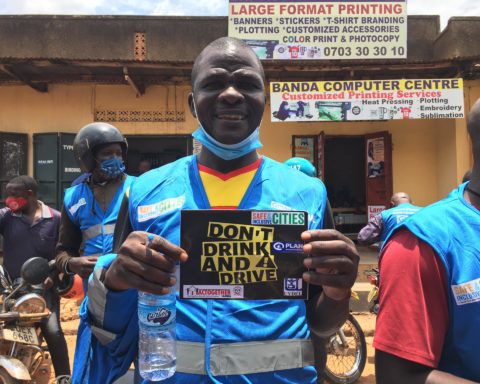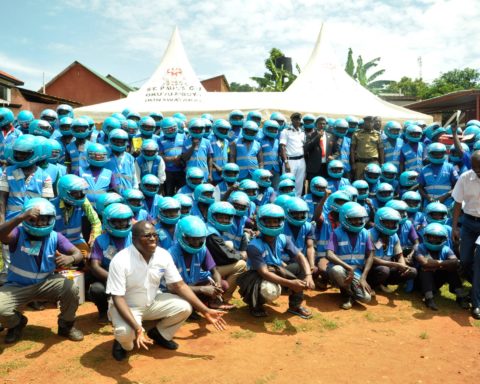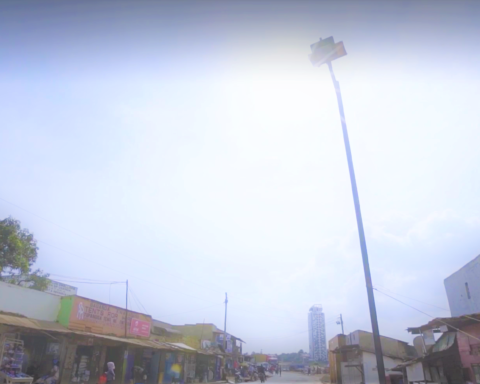Learnings
- Online platforms provide a space for youth voices. Here youth can mobilise peers and capture the attention of stakeholders
- Prepared for the Future: Digital skilling creates long-term opportunities for income-generation
- During a crisis, peer-to-peer spreading of information online is effective in mobilising local action
The young women and men living in Zimbabwe’s informal settlements are experts in the issues facing their communities – and they have ideas about how to solve them. There is one problem: in a gerontocratic society, young people lack platforms to amplify their voices to raise awareness and effect change. However, the digital space is one area where young people can come together to share ideas and organise for positive change.
To help young people build online platforms and mobilise their peers, SAIC ran workshops providing young people with guidance in effective communication and training in technical skills, like cinematography and editing. Equipped with this knowledge, young content creators in Zimbabwe have gone on to build online platforms that reach thousands in their local communities and beyond.
Prepared for the Future
The youth organisations and individual influencers who graduated from the SAIC programme have attained decent work by putting their new skills into practice, while also facilitating peer-to-peer engagement on social issues. These platforms invite collaboration with local communities and businesses and have even held competitions that open up their platforms for peers to make their voices heard.
Here, we see one of the winners from a youth-run competition called ‘Art for Change’:
This competition helped spread awareness about substance abuse and violence. Thousands of votes were cast by the organisation’s Facebook followers to decide the winners.
Using art as a tool to communicate about social issues and influence positive change has been hugely successful. A Family Secret, a short film made by youth organisation Zizo Motion Pictures, was nominated for ‘Outstanding Short Film’ at the Bulawayo Arts Awards 2021. The film tackles the issue of sexual gender-based violence (SGBV) in Zimbabwe, with the aim of raising awareness and starting a conversation about an issue that, while widespread, remains largely unspoken about in society.
Content covering social issues pertinent to young people has attracted interest online and in local communities, opening up fresh dialogue in society. This dialogue sensitises peers which helps the youth voice grow louder and begin to instigate change by influencing stakeholders.
A series of skits were written and shot by youth to raise awareness about safety issues affecting residents of informal settlements. Episode one of #skits4change highlights the danger of using unregistered ‘pirate’ vehicles (known as mshikashika) as transport, instead of registered public transport options.
Youth-led workshops
Several youth orginisations created through the SAIC programme now run their own capacity building workshops for young women and men.
Mbilez24’s workshop focuses on the skills required to communicate effectively and also emphasizes the importance of ethics in digital storytelling – in the words of one facilitator: “One has to make sure they protect their audience by not spreading unverified news and subjective news.” The aim is to equip young people with the skills needed to amplify their voice and mobilise peers, as well as create opportunities for income-generation.
Zizo Motion Pictures is facilitating ‘ideathons’ with youth to identify the problems facing their communities and brainstorm solutions. Participants were taught both how to use social media as a tool to raise awareness and how to go about engaging local stakeholders to find solutions. Facilitator Praise L Nkala used these tools to make a difference in his community and describes it as his “mission” to help other young people identify and solve the problems they face.
These peer-to-peer trainings are effective in mobilising young women and men and importantly, they create connections for further youth-led knowledge sharing between different communities.
Youth-led Media in a Crisis: COVID-19
Throughout the COVID-19 pandemic, youth groups and influencers engaged in peer-to-peer awareness raising. They used their platforms to disseminate information on preventative measures and helped communities to receive and spread information on COVID-19.
Youths also made videos exploring the social and economic effect that lockdown was having locally, giving voice to communities who usually remain voiceless in times of crisis.

Learn more about












